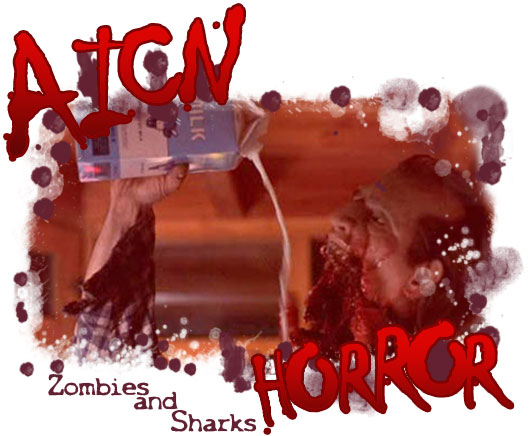
Greetings, all. Ambush Bug here with a special AICN HORROR: ZOMBIES & SHARKS column. I had the pleasure to talk with legendary filmmaker Herschell Gordon Lewis about his new documentary based on his life and gory contributions to the world of cinema called HERSCHELL GORDON LEWIS: GODFATHER OF GORE. Before we get into the interview, here’s a review of the documentary…
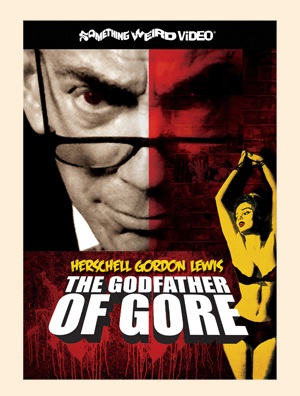 Available this week on DVD from Something Weird!
Available this week on DVD from Something Weird!HERSCHELL GORDON LEWIS: THE GODFATHER OF GORE (2010)
Directed by Frank Henenlotter & Jimmy MalsonStarring Herschell Gordon Lewis, David F. Friedman, Frank Henenlotter, Mal Arnold, John Bloom, John Waters, Ray Sager, Bunny Yeager
Reviewed by Ambush Bug
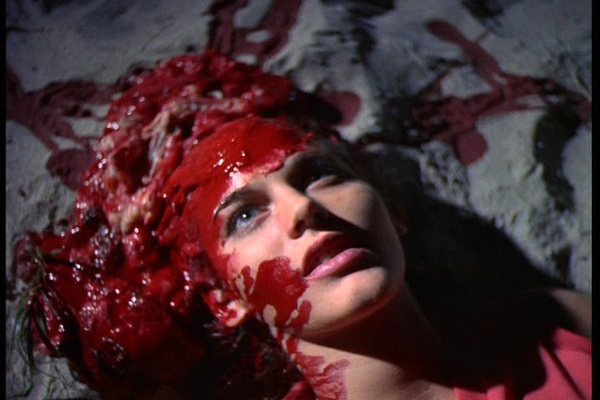 I love the number of documentaries recently focusing on horror through the ages. I’ve greatly enjoyed AMERICAN GRINDHOUSE as well as NIGHTMARES IN RED, WHITE, & BLUE in that not only do they provide a much-needed history lesson in the annals of horror, but they also provide a correlation to America’s own history through the eyes of a camera lens and actors, directors, writers, and fans that have spent many a night watching horror. If you’re a horror enthusiast, you know about Herschell Gordon Lewis. He coined the tern gore in cinema and applied it heavily to many of his more popular films, but this film does a great job of providing some of the backstory behind the Godfather of Gore.
I love the number of documentaries recently focusing on horror through the ages. I’ve greatly enjoyed AMERICAN GRINDHOUSE as well as NIGHTMARES IN RED, WHITE, & BLUE in that not only do they provide a much-needed history lesson in the annals of horror, but they also provide a correlation to America’s own history through the eyes of a camera lens and actors, directors, writers, and fans that have spent many a night watching horror. If you’re a horror enthusiast, you know about Herschell Gordon Lewis. He coined the tern gore in cinema and applied it heavily to many of his more popular films, but this film does a great job of providing some of the backstory behind the Godfather of Gore.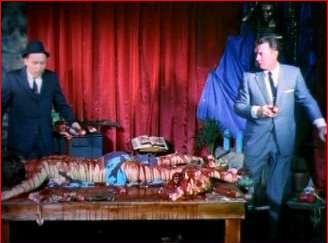 I found the parts talking about Lewis’ ingenuity through the years to be most fascinating. He seems to be a man who sees the holes in popular culture and knows how to fill them, rising to opportunity when it is most beneficial. Sure, his films were somewhat badly acted and shoddily shot, but the fact that he was the first making films which relied so much on gore makes his work iconic and historic. Lewis painted the screen with Technicolor reds, staining the audiences’ minds with a crimson gruesome hue. John Waters comments that much of the way Lewis staged his films was like a porno with the payoff being a gory and sticky finish comparable to the cum-shot. Somewhat crude, sure, but an accurate description nevertheless.
I found the parts talking about Lewis’ ingenuity through the years to be most fascinating. He seems to be a man who sees the holes in popular culture and knows how to fill them, rising to opportunity when it is most beneficial. Sure, his films were somewhat badly acted and shoddily shot, but the fact that he was the first making films which relied so much on gore makes his work iconic and historic. Lewis painted the screen with Technicolor reds, staining the audiences’ minds with a crimson gruesome hue. John Waters comments that much of the way Lewis staged his films was like a porno with the payoff being a gory and sticky finish comparable to the cum-shot. Somewhat crude, sure, but an accurate description nevertheless.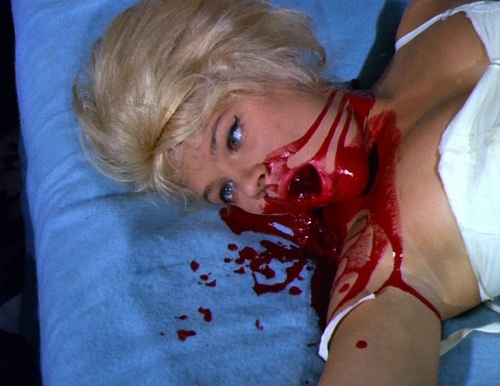 Lewis comes off as a charming and somewhat stubborn director with a will and craftiness that couldn’t be beat. Hearing the stories that went on behind the scenes of some of Lewis’ classics such as BLOOD FEAST, 2000 MANIACS, and WIZARD OF GORE makes the films themselves richer and more enjoyable. Something Weird is also releasing those three films on BluRay this week, which is the perfect accompaniment to this documentary.
Lewis comes off as a charming and somewhat stubborn director with a will and craftiness that couldn’t be beat. Hearing the stories that went on behind the scenes of some of Lewis’ classics such as BLOOD FEAST, 2000 MANIACS, and WIZARD OF GORE makes the films themselves richer and more enjoyable. Something Weird is also releasing those three films on BluRay this week, which is the perfect accompaniment to this documentary.The documentary kind of sags in the end, making me think that this might have been a tighter documentary if it were only an hour, but nevertheless, it is a fountain of great stories about a filmmaker who definitely stained his mark on the horror industry. Highly recommended.
And here’s what Mr. Lewis had to say about his life, his films, and what’s next for the Godfather of Gore…
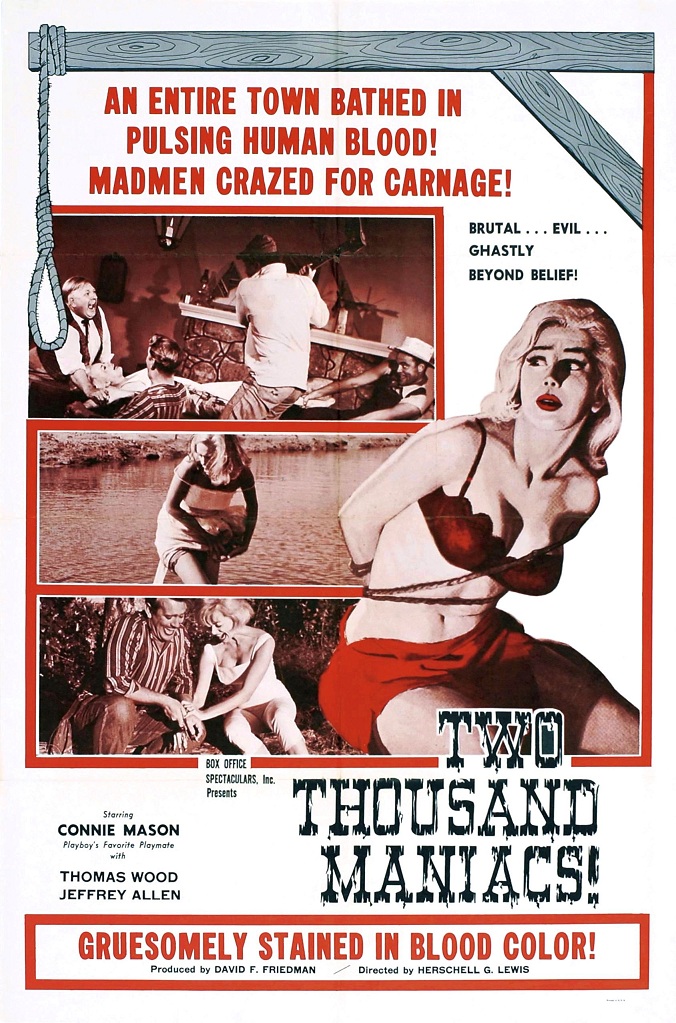 AMBUSH BUG (BUG): Good morning. It’s an honor to talk to you, sir. How are you today?
AMBUSH BUG (BUG): Good morning. It’s an honor to talk to you, sir. How are you today?HG LEWIS (HGL): Oh, couldn’t be better man, thanks.
BUG: Well that’s good. So I actually just took a look at THE GODFATHER OF GORE last night. I watched the documentary last night. It’s a great documentary and tells a lot about you. What’s it like to have a documentary made about your life and your films?
HGL: Well as long as it wasn’t totally insulting, it was certainly an honor to be recognized at all. Some of the recognition is somewhat negative, but on the other hand some of these movies have survived the way they have in the face of impossible competition, in the face of similar motion pictures that have budgets roughly 10 to 50 times what my budgets were. I do regard that as something of a compliment.
BUG: Definitely. One of the things that I noticed was that you’re from Chicago. I live in Chicago, I’ve been here for about 15 years and I was curious, did you grow up here?
HGL: Sure, I grew up in Chicago. When we first moved… I was born in Pittsburgh, my father died when I was just over six years old…we moved to Chicago when I was about 13 or 14 years old and we lived in a little apartment between Murphy and Pine something right off Sheridan Road and then later on I was a student forever at Northwestern and we had an apartment on Addison Street and the Outer Drive, but I would stand out there in the freezing weather hitchhiking to school, so I could save a quarter on the out. So yeah, I grew up in Chicago.
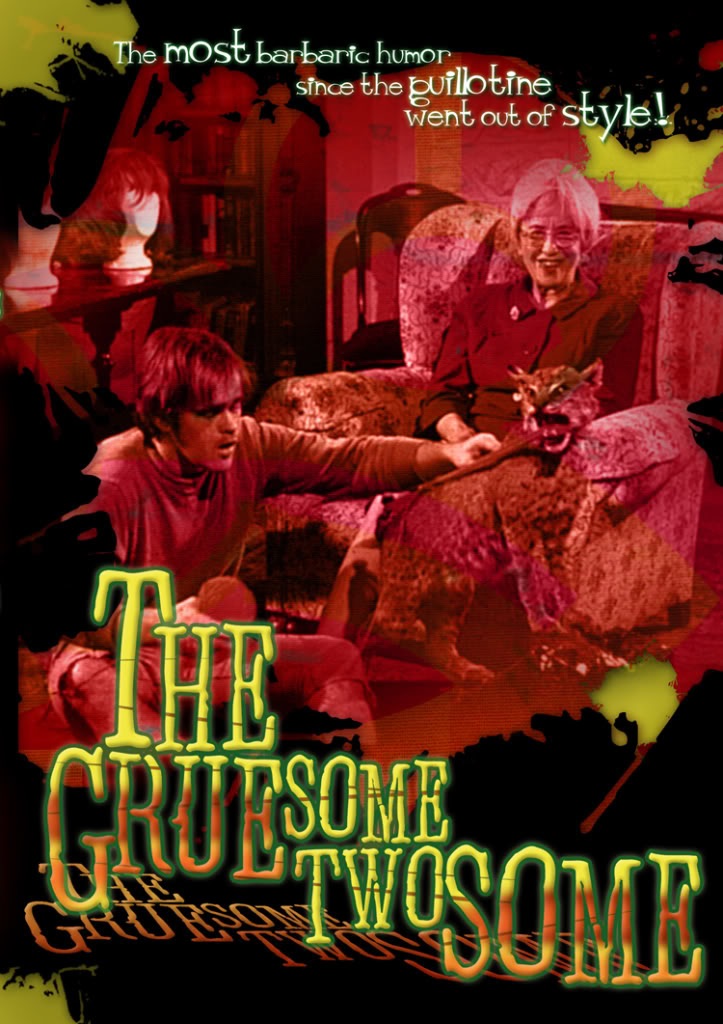 BUG: Great, well what was it about Chicago? Do you think that influenced you in your films early on?
BUG: Great, well what was it about Chicago? Do you think that influenced you in your films early on? HGL: Well in a sense, yes, because what happened was through a whole bunch of strange circumstances and I won’t bore you with all of that, I was teaching school as a matter of fact at Mississippi State. I was teaching English literature and a fellow I had gone to school with at Northwestern had an advertising agency in Chicago and he told me he was a television director and so back I came to Chicago and that started a whole series of circumstances which had led me, really, over all of these years, to become a firm believer in serendipity and finding what you’re not looking for. The result of all of that was that I had wound up as the half owner of a little commercial film studio, so what drove me into features was the big advertising agencies that were shooting their stuff in California, because the California studios had 35mm film equipment and we only had 16mm, so I bought 35mm equipment and the big agencies still went to California. One day was really strange… Greek drama has a device called Deus Ex Machina, “God from Machine” and when Aristophanes or Aeschylus or somebody would write themselves into a corner, God would come down in a basket and solve all of their problems and plot lines. Well, my Deus Ex Machina as it turned out was a fellow I barely knew and I was complaining about the film business and he said, “Well how do you make any money in that business?” I said, “The only way to make money is to shoot features.” He said, “Why don’t you shoot features?” It’s like saying “Why aren’t you rich?” There’s really no answer to that question. You talk about a bad seed being planted, and that is what got me into the business, and yes the first several features that I shot were entirely in Chicago.
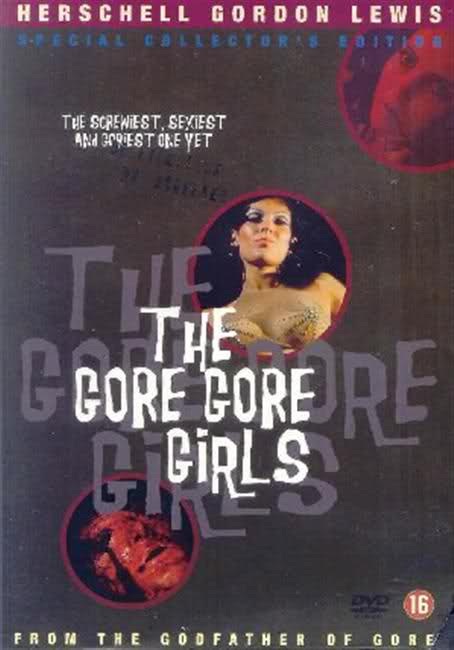 BUG: Okay, and I know that you started out shooting some of the…I guess they are kind of like cheesecake, kind of like nudie camp films and things like that? In the documentary they talked about you guys going to the nudist camps and then making your guys go nude as well. What was that experience like for you?
BUG: Okay, and I know that you started out shooting some of the…I guess they are kind of like cheesecake, kind of like nudie camp films and things like that? In the documentary they talked about you guys going to the nudist camps and then making your guys go nude as well. What was that experience like for you? HGL: Well it really wasn’t the way Dave Friedman described it, because I had a mechanical problem that nudity would have been a real factor in and that was I was not just a director of these movies, I was also the camera man, and I was loaded up with filters and eye pieces and so on and if I hadn’t had any place to store them there would be a lot of scott tissue used on these movies. (Laughs) So the result was yes I kept on a pair of shorts and not out of modesty, because you lose all modesty in these situations. There is zero sexual attraction when you are in the middle of something like that. Most people don’t see it that way, because they haven’t been exposed to it, but once one has been exposed to it, it’s simply another factor of the business and if you are in the movie business you have two attitudes you can adopt, especially if you’re an independent. Attitude One: “I’m a genius and whatever I shoot is going to be absolutely magnificent and people will spend a lot of money to tell me what a genius I am.” Or attitude 2: “It’s a business. It’s a hard boiled business and there are others with contacts that I don’t have and if I want to survive in this business I will shoot a movie in which somebody who does not know what a genius I am will pay some money to look at it.” And I have always made a big point of subscribing to that second approach.
BUG: All through the documentary you talked about really just seeing opportunities and seeing holes in entertainment and filling them with...it started out with the nudie films and then it went on to the gore. It seemed like you have a good eye for what the public wants, even though it’s not there yet.
HGL: That’s very kind of you to say, and to do that by the way you have got to throw your ego out the window, because ego is the enemy of success in the motion picture industry. We call it “the film business,” but too many people don’t regard it as a business at all. They don’t make a movie, they give birth and they can’t take a negative comment about their movie, “Oh, you are attacking my child!” No, that’s not the case at all. I was noticing a couple of weeks ago, and I might be varying from what you want to talk about, so yell at me if I do…
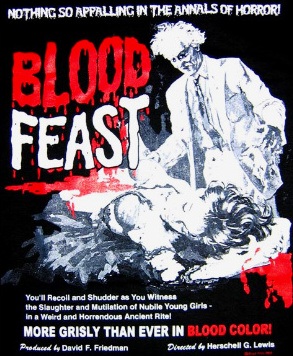 BUG: That’s okay.
BUG: That’s okay. HGL: There’s a movie called CREATURE which opened and closed a few weeks ago. Now ,CREATURE was put together by a fellow named Sid Sheinberg who is known somewhat as Steven Spielberg’s godfather, I guess you would say, and the movie set a new low for a box office gross. How they decided to open that in theaters is something of a mystery anyways. I would like to get that for my latest movie, but the idea of “I’m going to make a movie and whatever it is, it’s going to be a success.” I think that’s as deadly as any approach could be.
BUG: Sure. Well let’s talk about some of the films you are more known for. How about we start out with BLOOD FEAST, the big one. What can you tell me about that? Do you have any stories that you have while filming that film?
HGL: (Laughs) Yes. When we started to do BLOOD FEAST we shot everything on location, I could not afford to go to a studio and that was about as experimental as a movie could be, because nobody had ever made a movie of this type before. Our philosophy, Dave Friedman’s and mine, was that we wanted to make the kind of motion picture the major companies could not make or would not make and yet some brave theater would exhibit and a handful of courageous film goers would go to look at and I was working around what kind of movie might that be? Well, the studio business was going in a direction I didn’t want to get into. At the time I had told him, I said, “That’s as far as I want to go with this. What might we do next?” But I had the equipment. I had an ancient Volkswagen bus loaded with obsolete equipment and somebody said to me, “That camera of yours ought to go to the Smithsonian” and my answer was “Where do you think I got it?” The whole thing was done with high good humor, but in the case of BLOOD FEAST here was an opportunity, and we called these people when we were looking at their homes and around their home, their yards and so on, that we were shooting an orange juice commercial and by the time they found out that it was quite obvious after we had shot a scene or two that it certainly not an orange juice commercial, we were up and gone. (Laughs)
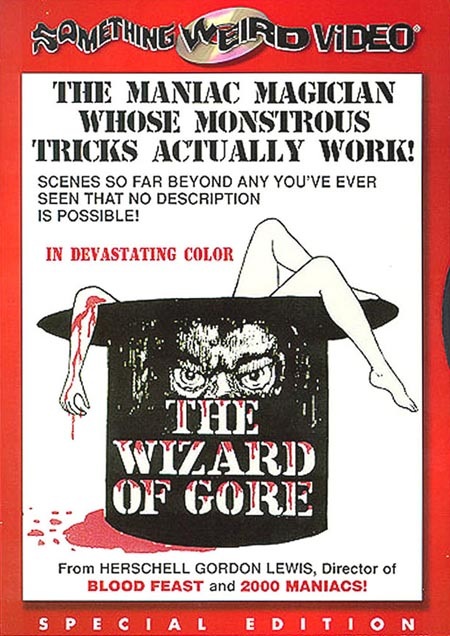 And how the movie played at all became a total mystery to the motion picture industry until they began to analyze the grosses that we did with this film. At that point the movie became an embarrassment, because I said, “If I had known that we were going to do some business with this, I would have paid more attention. I would have had a shooting schedule that ran longer than four days. I might have hired ten different actors instead of the people we had.” But see, that’s after the fact and it’s not fair of me to apologize for my own creation. As Dr. Frankenstein, according to Mary Shelley who wrote that story, kept apologizing for the monster that he had created, but I am delighted with the monster I created. It gave me really a touch of immortality.
And how the movie played at all became a total mystery to the motion picture industry until they began to analyze the grosses that we did with this film. At that point the movie became an embarrassment, because I said, “If I had known that we were going to do some business with this, I would have paid more attention. I would have had a shooting schedule that ran longer than four days. I might have hired ten different actors instead of the people we had.” But see, that’s after the fact and it’s not fair of me to apologize for my own creation. As Dr. Frankenstein, according to Mary Shelley who wrote that story, kept apologizing for the monster that he had created, but I am delighted with the monster I created. It gave me really a touch of immortality.BUG: So while you are filming that film, when you are using that much blood and that much gore and it hadn’t been used before and you were using part animal parts and things like that, what was it like for the actors who had never seen this type of film before and the rest of the crew and everybody around?
HGL: It was totally non-pleasant. Almost everybody in that movie was totally bewildered at what we were doing. “Do you think anybody will ever show this thing?” And in fact as we were cutting it in my little cutting room in Chicago people would say, “Is this a medical film?” No one understood what we were doing to a point where I began to think I didn’t understand it either, but what happened was when we finally opened this movie and we opened it in Peoria, saying, “If we die in Peoria, who will know?” That’s how embarrassed we had already become with our creation. (Laughs) It did well there and the attention given to it, both positively and negatively, both sides contributed heavily to the success of that movie. Even then I had no idea that we had given birth to a new genre of motion picture. It was only after someone said “Hey, if you made one that wasn’t quite so bloody we would play it.” And that was really the genesis of 2,000 MANIACS, the next picture which by the way to this day is my favorite of all of the movies I have made.
BUG: Yeah, I was going to ask you that. So what is it about 2,000 MANIACS that makes it your favorite?
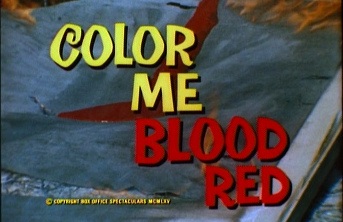 HGL: Well first of all it was about as personal a movie as anybody could make. I was a director and camera man and my voice on that theme song beginning…in fact, Mark, on the 15th I think it is of October I am due in Chicago through the Music Box Theater, which is I guess is near Irving Park somewhere.
HGL: Well first of all it was about as personal a movie as anybody could make. I was a director and camera man and my voice on that theme song beginning…in fact, Mark, on the 15th I think it is of October I am due in Chicago through the Music Box Theater, which is I guess is near Irving Park somewhere.BUG: Yes, I’ve been there quite a few times.
HGL: Yeah, they are going to screen THE WIZARD OF GORE, which is something of an embarrassing movie, but so what? And in talking to the people there, we had a discussion that I may sing the theme song from 2,000 MANIACS. Maybe you will be there, that would be very nice.
BUG: I try not to miss the Music Box Massacre every year, so I most definitely will be there.
HGL: Oh great, well I will be there on the 15th of October.
BUG: Okay, that sounds great. Well just wrapping up here, what do you have coming up with you? Are you still making films?
HGL: Yes I am, and I would tell you somewhat off the point here, my new movie which is called THE UH OH SHOW, I wrote it and I directed it, but I made a mistake in the negotiations on that movie where I’m left out of the distribution pattern and the fellow who is the producer of this movie is not of our world and he has made some distribution deals with which I am not particularly thrilled excluding, by the way, any possibility of theatrical release. That movie is just now finished. I’m also sitting with a script called MR. BRUCE AND THE GORE MACHINE and if anybody wants to produce that movie, by gosh I am available to direct it.
 BUG: That sounds fantastic. If I had the money I’d finance it on the title alone. So am I allowed to put what you just said in the interview?
BUG: That sounds fantastic. If I had the money I’d finance it on the title alone. So am I allowed to put what you just said in the interview? HGL: Sure. I have no fears of anybody any more.
BUG: Great. Alright—well, it’s been a real thrill to talk with you today and hopefully I will be able to see you at the Music Box Massacre as well.
HGL: I count on it Mark, thank you.
BUG: Thank you so much and have a great day.
HGL: And to you.
BUG: HERSCHELL GORDON LEWIS: THE GODFATHER OF GORE is available now on DVD from Something Weird!
>Ambush Bug is Mark L. Miller, original @$$Hole / wordslinger / reviewer / co-editor of AICN Comics for over nine years. Mark is also a regular writer for FAMOUS MONSTERS OF FILMLAND and will be releasing FAMOUS MONSTERS first ever comic book miniseries LUNA in October Order#AUG111067 (co-written by Martin Fisher with art by Tim Rees)! Support a Bug by checking out his comics (click on the covers to purchase)!


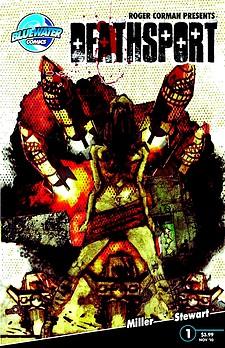
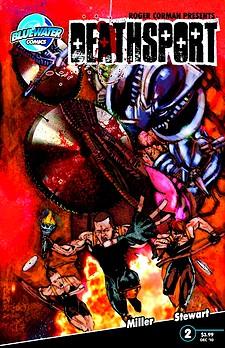
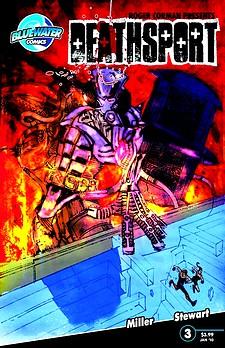
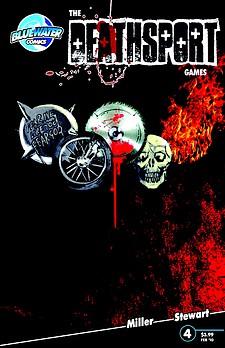
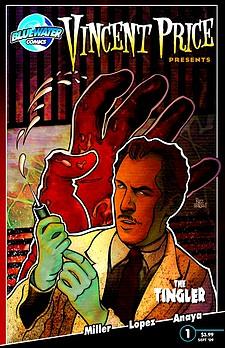
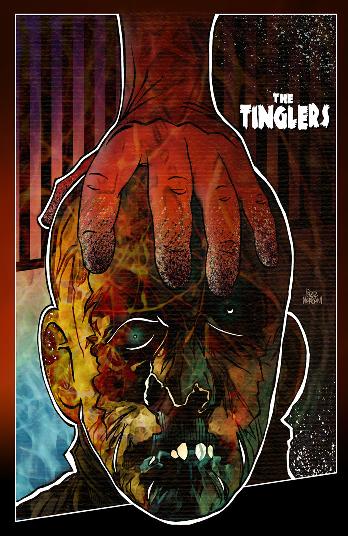

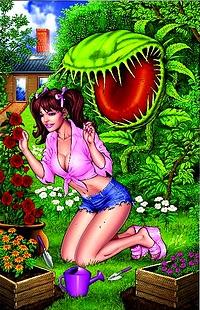

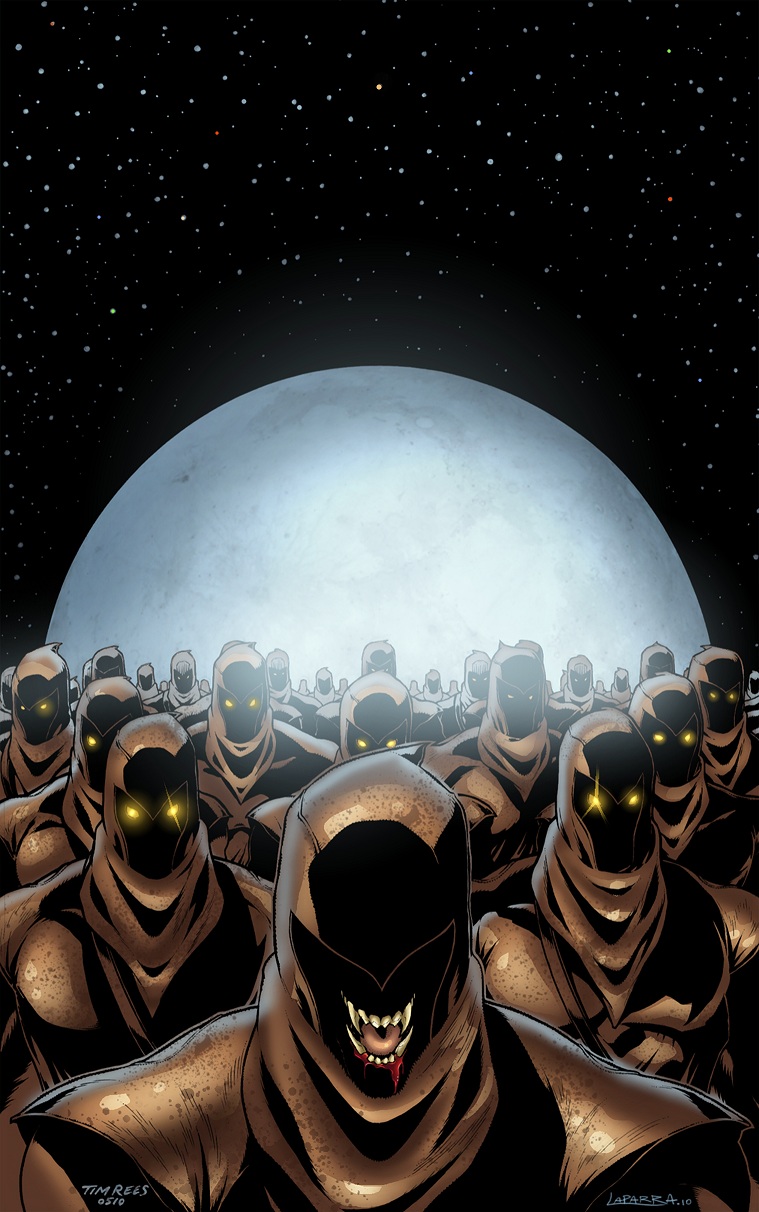
Check out NANNY & HANK’s Facebook Page
Check out THE DEATHSPORT GAMES’ Facebook Page
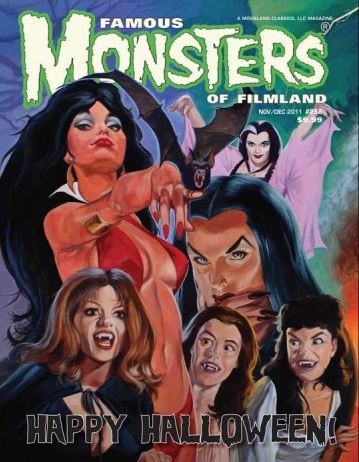
Looking for obscure, foreign, or hard to find DVDs & BluRays? Check out AH Digital: the source for international cinema!
Find more AICN HORROR including an archive of previous columns on AICN HORROR’s Facebook page!
